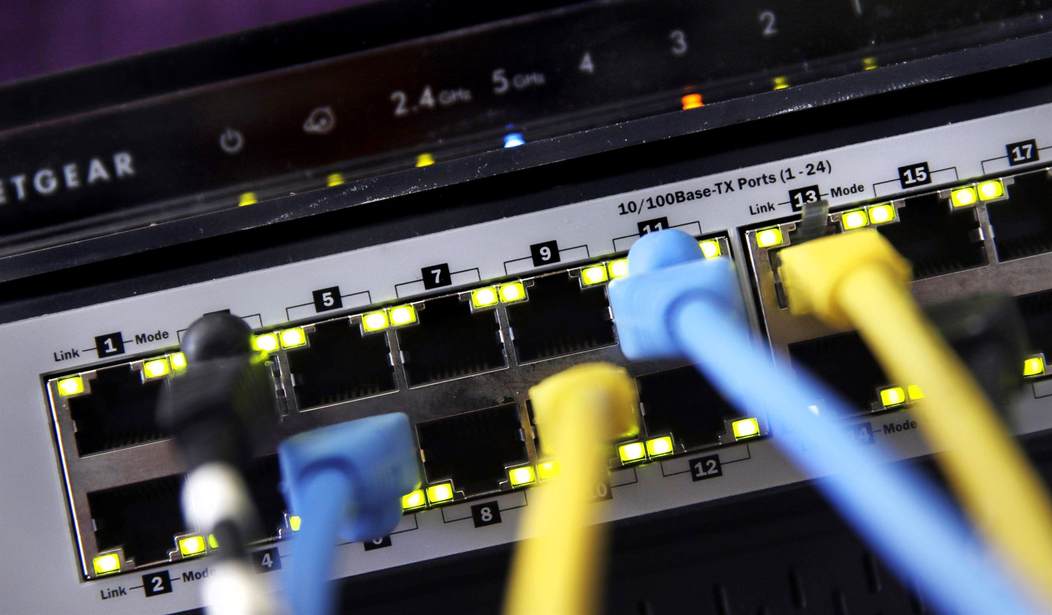I did not know this until I ran across a post on X, but come December 27, 2025, every internet search any person makes will require Digital ID verification before it can be completed.
If the search engine provider fails to check for your ID, they face a $50 million fine. For each "breach" of the law.
Needless to say, I am pretty sure that search engines will comply with the law.
Australians will soon be subjected to mandatory age checks across the internet landscape, in what has been described as a huge and unprecedented change.
Search engines are next in line for the same controversial age-assurance technology behind the teen social media ban, and other parts of the internet are likely to follow suit.
At the end of June, Australia quietly introduced rules forcing companies such as Google and Microsoft to check the ages of logged-in users, in an effort to limit children's access to harmful content such as pornography.
But experts have warned the move could compromise Australians' privacy online and may not do much to protect young people.
"I have not seen anything like this anywhere else in the world," said Lisa Given, professor of Information Sciences from RMIT, who specialises in age-assurance technology.
"As people learn about the implications of this, we will likely see people stepping up and saying, 'Wait a minute, why wasn't I told that this was going to happen?'"
From December 27, Google — which dominates the Australian search market with a share of more than 90 per cent — and its rival, Microsoft, will have to use some form of age-assurance technology on users when they sign in, or face fines of almost $50 million per breach.
The search results for logged-in users under the age of 18 will be filtered for pornography, high-impact violence, material promoting eating disorders and a range of other content.
Despite the apparent magnitude of the shift, it has mostly gone unnoticed, in stark contrast to the political and media fanfare surrounding the teen social media ban, which will block under-16s from major platforms using similar technology.
It's for the children, you see. Because of course it is. Everything is for the children.
DIGITAL ID - Australia lets the cat out of the bag!
— Bernie (@Artemisfornow) November 11, 2024
In order to ban under 16s from social media, EVERYONE will have to have digital ID or they won’t be able to get on the internet
It wasn’t a conspiracy theory was it 🔥
pic.twitter.com/yN07eSf3dy
This is one more example of how privacy protections are eroding faster than a dam built of loose straw in the Anglosphere. Age restrictions on pornography, or, less convincingly, on social media, can be justified as necessary to protect children from genuinely harmful content. But requiring every search to be tied to a specific identified person is an outrageous invasion of privacy and ripe for abuse.
Australia Just Normalized Mass Online ID Checks—Your Country Could Be Next
— Camus (@newstart_2024) November 3, 2025
Starting December 27, Australians will be forced to upload government ID every time they search the web while logged in. Google, Bing—it doesn’t matter. No ID, no search.
The excuse? Protecting kids from… pic.twitter.com/k8HxL87v4n
Starting December 27, Australians will be forced to upload government ID every time they search the web while logged in. Google, Bing—it doesn’t matter. No ID, no search.
The excuse? Protecting kids from adult content. The reality? A full-scale experiment in digital control.
- Mandatory ID uploads for all users—teenagers, seniors, everyone.
- Facial recognition or digital ID linking as the "convenient" alternative.
- No opt-out. No transparency. Just compliance.
This isn’t just about Australia. It’s a test case for global surveillance. Once the infrastructure exists, what’s stopping other governments from adopting it? Tracking searches? Censoring results? Who decides what you’re allowed to see?
If this stands, your country will be next.
The slippery slope starts here. Will you let them build it?
I almost never agree with The Guardian, but their description of how dystopian the Digital ID requirement is and how it has been slipped in through the back door is one place I can do so.
If this is the first time you’re hearing about it, you’re not alone. Despite the significance of the changes, these latest rules are the result of industry codes, which differs to regular legislation. These codes don’t go through parliament. Instead, they’re developed by the tech industry and registered by the eSafety commissioner in a process called co-regulation. On one hand, this can be good: it can allow for more flexibility or technology-specific detail that is less appropriate in legislation. On the other: it creates risk of industry co-option, and by bypassing parliamentary process, can give an enormous amount of power to an unelected official (in this case, the eSafety commissioner).
Greens senator David Shoebridge has called the implications of age verification for search engines “staggering” and noted that “these proposals don’t have to go through an elected parliament and we can’t vote them down no matter how significant concerns are. That combined with lack of public input is a serious issue.”
The age verification policy development process has been littered with blunders that make a mockery of meaningful consultation and evidence-based policy development. It is particularly striking that these codes were drafted before the completion of the government’s $6.5m trial into the efficacy of age assurance. Later, the trial’s preliminary findings conceded the technology is not guaranteed to be effective, and noted “concerning evidence” that some technology providers were seeking to collect too much personal information.
You see how they did this? Not through a law, where there are democratic checks on lawmakers, but through regulations, which are designed and implemented behind closed doors. Bureaucrats—technocrats—run our lives for their convenience.
Everybody needs a digital ID, say heads of state and high-tech leaders. They give many reasons: it will stop illegal migration; it will increase efficiency; it will protect privacy; and it will prevent online fraud and data ransoming.
— Michael Shellenberger (@shellenberger) September 27, 2025
But we don’t need digital IDs for any of… pic.twitter.com/PxFlUy5weH
Soon enough, the government will be able to conveniently track you across the internet without effort. Your travels will be tagged with your ID, and your search inquiries will be there for all to see.
Social credit system, here we come.
Editor’s Note: The Schumer Shutdown is here. Rather than put the American people first, Chuck Schumer and the radical Democrats forced a government shutdown for healthcare for illegals. They own this.
Help us continue to report the truth about the Schumer Shutdown. Use promo code POTUS47 to get 74% off your VIP membership.








Join the conversation as a VIP Member